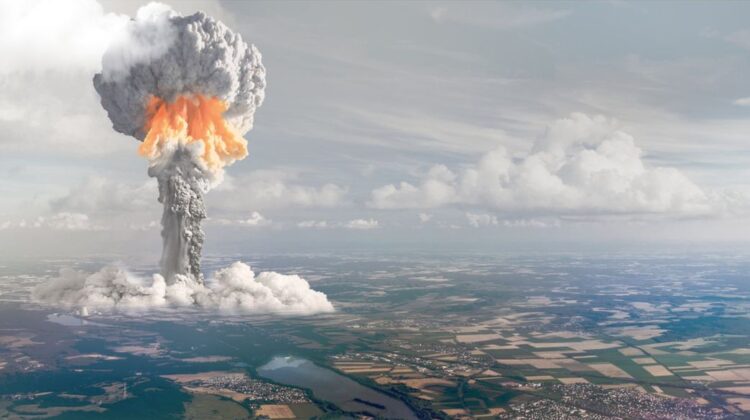
With the threat of nuclear war looming once more, it may be worthwhile to investigate what, if anything, can be done to improve your chances of survival.
So, consider a study published a few years ago that looked at how a person’s behavior can affect their chances of survival, as well as the best course of action to take if a massive ball of death blooms in the center of the city where you live.
Here’s how it works: On May 15, 2006, at 11:15 a.m. EDT, a 10 kiloton improvised nuclear device is detonated in downtown Washington DC at the intersection of K Street NW and 16th Street NW. What would occur?
We already have a good idea of what happens when a nuclear bomb is detonated in a city. If it was a surface blast, the radiation would spread faster, and the fireball at the center would be larger than if it had been detonated above the city.
That fireball, which forms in a millionth of a second, is so hot that it would destroy everything in its path. Essentially, all matter – whether it is the building you are in, the chair you are sitting on, or yourself – would be converted from a solid to a gas. According to the study’s scenario, an entire block in Washington, DC would be converted to plasma.

Following that, thermal radiation, in addition to the expected nuclear radiation, would cause first-degree burns. At the same time, a massive shockwave would spread until all that remained was the nuclear fallout raining down from above. Everything is physics, and everything is predictable.
People, on the other hand, are notorious for their unpredictability. The study used a system known as “agent modeling” to shed light on this. This effectively runs a number of different scenarios of what people might do, ranging from the simplest to the most complex, with individual “agents” in the model acting and reacting in their own way, whether by seeking shelter, evacuating the area, seeking health care, or worrying.
Based on the results, the team determined the best course of action.
90,000 people will die within the first 10 minutes, regardless of what anyone does. If no one does anything, a lot more people die – up to 279,020 over the course of 48 hours, according to the study. If people start acting in the ways outlined above, the death toll drops dramatically, especially if they stay in their house for at least 12 hours.
However, the researchers also predicted what would happen if survivors went looking for loved ones. Surprisingly, many make it into the impact zone. More people die when they seek out family members, as they are more likely to leave their shelter and thus become exposed to radiation. Interestingly, the researchers point out that this could be mitigated by quickly restoring communications so that people can call and know their loved ones are safe.
So it appears that it is better to stay in your house, keep an eye on number one, and avoid attempting to rescue friends, loved ones, or pets. Allow them to fend for themselves.

Leave a Reply